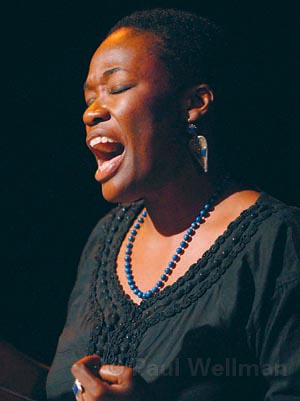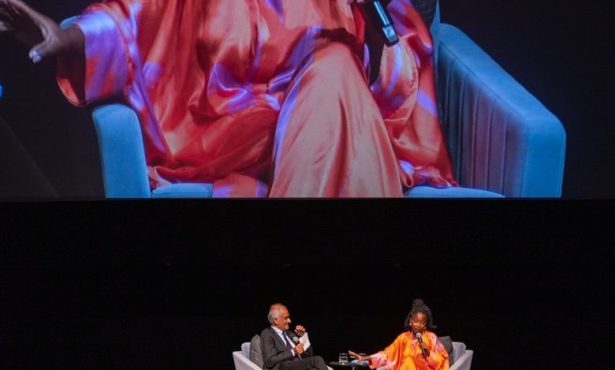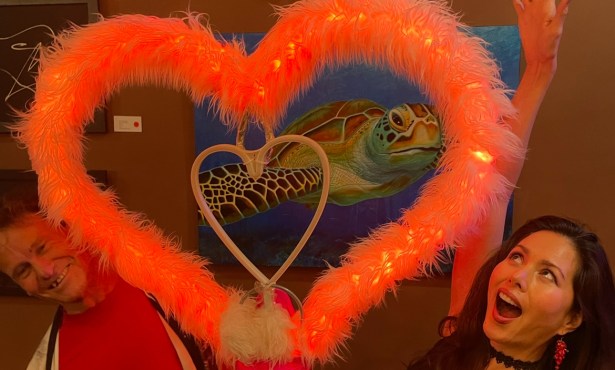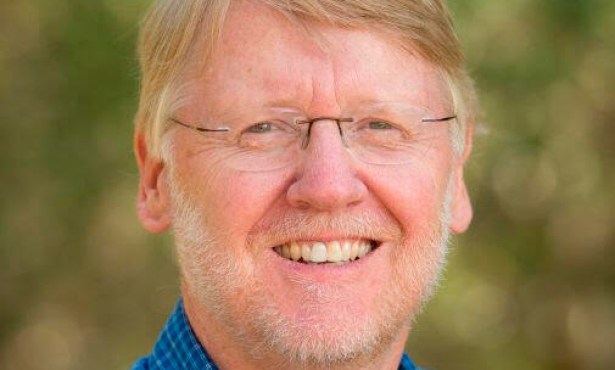Because When God Is Too Busy: Haiti, Me, and the World.
Gina Athena Ulysse at Center Stage Theater, Saturday, August 11.

A spoken-word artist and professor of anthropology at Wesleyan University, Gina Athena Ulysse was born in Haiti and migrated to the United States with her family in her early teens. Her dramatic monologue, Because When God Is Too Busy: Haiti, Me, and the World was staged last Saturday as a benefit for a new documentary film on Haiti, Poto Mitan: Haitian Women Pillars of the Global Economy, and was hosted by UCSB’s Center for Black Studies Research.
“Imagine another world, a better world,” chanted Gina Athena Ulysse on Saturday night, indicating that it was time to move on, beyond a present-day reality in which “blackness still equals poverty.” She was speaking about Haiti, her home, and about the bleeding of contemporary Haiti, which is a troubled place. The Haitian revolution of 1804 was the only slave revolt to result in the successful formation of a sovereign nation. But who knew that such a “success” would only lead to a new kind of enslavement? Today, Haiti remains one of the poorest nations in the world with a long-standing history of abuse that began with its very independence. “The revolution is not over,” said Ulysse.
The performance was both awe-inspiring and uncomfortable, surging from refined cynicism to primordial screams. The show opened with an empty black stage and the sorrowful throaty singing of Ulysse issuing from the behind the curtain. She stepped onto the stage and began to speak, to chant, a flow of childhood memories and repetition, a long, run-on re-creation of memories with words.
And so she painted a world of frustration and suffering. Ulysse spoke of racism, misogyny, colonialism, and her own intermingled struggle to find her self and home. She spoke of her own fight for Haiti, “I am powerful on my knees,” she said, “I am never alone.” Ulysse spoke with a bite, “Wake up,” she was saying, “Wake up and see how things really are.” And so we listened and she told us about the continual U.S. invasions of Haiti, the succession from dictatorship to a not-so-successful “democracy.” She was a fantastic whirlwind of word and emotion, transforming Haiti from an objective abstract to a subjective reality. “Maybe we can change the world,” Ulysse said, and so she did, one word at a time.



